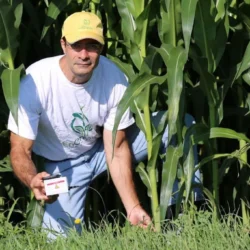‘Africa’s population will double by 2050, but available agricultural land will not, therefore more focus on innovation, technology and precision agriculture is needed to respond to increasing food security needs.’
The Western Cape Department of Agriculture (WCDoA) has signed a five-year memorandum of agreement with CASE IH, an agricultural machinery manufacturer, at the recently held Nampo Cape in Bredasdorp.
Under the agreement, CASE IH, renowned for its expertise in agricultural technology and state-of-the-art agricultural equipment, will provide the department’s seven research farms with unparalleled knowledge and resources, according to a media statement issued by the department today.
The research agreement provides for:
- Joint projects in plant sciences and technology advancement;
- Guest lectures at Elsenburg College;
- Information on the latest technological trends regarding equipment for Elsenburg students;
- Practical demonstrations to Elsenburg students; and
- Demonstration of equipment by Case IH at the department’s seven research farms or other facilities and use of the equipment in research trials.
Western Cape Minister of Agriculture, Economic Development and Tourism, Dr Ivan Meyer, the agreement is groundbreaking and will boost research and precision farming at these research farms in the Western Cape.
“It will pave the way for substantial economic growth and job creation, reinforcing the stability of the agricultural sector.”
Dr Ilse Trautmann, Deputy Director General of Agricultural Research and Regulatory Services at the WCDoA, and Stephan Nel, Managing Director of CASE IH Southern Africa, drove the agreement.
Trautmann said the initiative is an example of how partners in the agricultural sector can support research to benefit the sector and advance technology development with sound scientific, climate-smart and outcome-based processes and state-of-the-art equipment.
Meyer said Africa’s population will double by 2050, but available agricultural land will not, therefore more focus on innovation, technology and precision agriculture is needed to respond to increasing food security needs.



